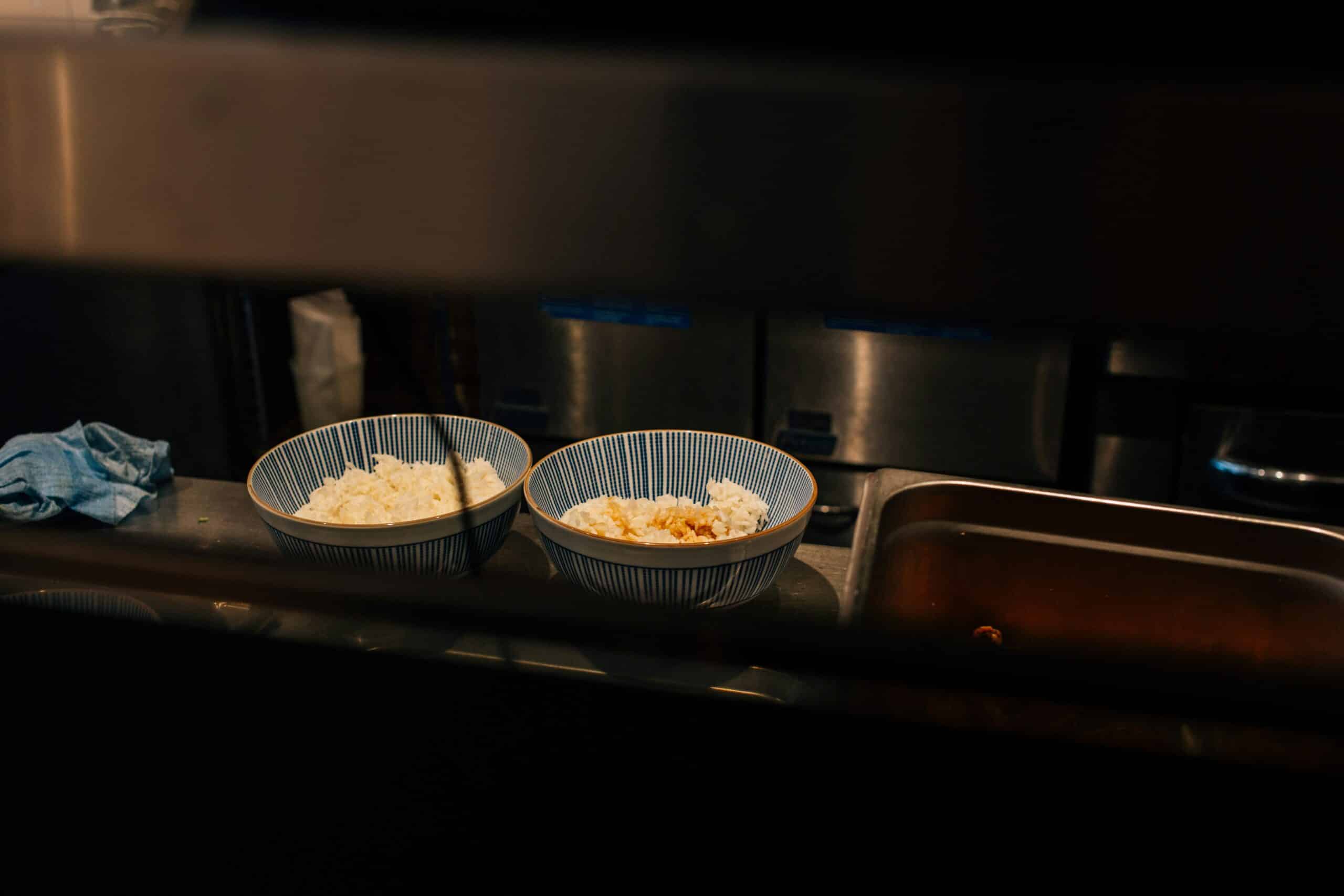
As a cadet at the Philippine Military Academy in Baguio, my father would steal out some nights just to get an order of pancit canton at Star Café on Session Road. His drink was Royal Tru-Orange and dessert was Baby Ruth Chocolate.
He never let on if he was ever caught, but his cousins told us how, on some weekends when they visited him, he was marching around the academy’s perimeter fence as punishment for some infringement of the rules.
His mother, my namesake, Micaela, cooked the Ilocano food he loved—kilawing kambing, pakbet, papaitan. He said my grandmother never bought cooking oil but expressed the oil from pig’s intestines given to her by her butcher at the market. That must be the reason why chicharon bulaklak is a special weakness in the family.
My grandfather Alvaro loved to go to market to buy liver from freshly slaughtered pig, have it grilled, then eat it for breakfast. The Fenixes were migrants from Indang, Cavite. Alvaro and his siblings were supposed to go to Ilocos Sur. But the cow that pulled the carriage died on Naguilian Road and so they stayed in Bauang, La Union.
It’s one of my father’s stories—perhaps an attempt at a family fairy tale to entertain his grandchildren. My younger son must have sensed something like that when he asked me if grandfathers lie.
American food
It was only in Olongapo, Zambales, that my father’s nickname became “PO,” pronounced Poe and not the way we say “po” when talking to an older person. Maybe it was because he signed his name P.O. Fenix; Pablo was his first name while O stood for Obra, his middle name.
It was also in Olongapo where my father developed a taste for what I call very American food. He had access to Subic Base because he was the city engineer of Olongapo, then under the Americans. He loved the steak and the cheeseburger he could have there. For me, the base had the best cheeseburger, and nothing compares to it for me to this day.
He also could have bleu cheese, one of the “exotic” food he taught me to appreciate. He could have his fix of Baby Ruth anytime, but he did get other chocolate bars for us.

My parents knew every nook and cranny of Chinatown because they went around with their friends, the owners of Merced Drugstore, to taste what the place had to offer. My father sometimes brought home newly cooked pancit from his favorite panciteria with the steam coming out of the just-opened pack and the best aroma that accompanied it.
That and the taste of egg pie, not cardboard-y the way it is now, are part of my food memories.
Eye of roasted lamb
He worked for some years in Saudi Arabia and he described how, when he was the honored guest, his Saudi host gave him the eye of roasted lamb. His face said it all—not exactly his favorite fare. But he was diplomatic enough to smile when handed the eye, he said, and pretended he liked it. At least his Ilocano palate was used to eating pig, cow and goat innards, exotica as well to those not used to those.
When he got tired of chicken and lamb, he would visit the Aramco compound, the oil company that was considered an independent republic within Saudi Arabia, because dietary rules were not applicable there such as not serving pork and alcohol. Or he visited my friend from high school whose husband worked in Saudi as well. That’s where my father got some Filipino cooking and family life.
My parents stayed with me when they retired and sold their house. Because we always had fish on the menu, my father thought that I listened to his doctor to serve him healthier meals. When he craved for steak, he would call my sister and she knew it was for his steak break.
If he were still with us, Father’s Day should have his medium-rare steak, mashed potato and a salad with bleu cheese. My father never really drank alcohol much, but perhaps a glass of good red wine will make the meal more celebratory. Perhaps my pastry chef friends can do something with Baby Ruth.
On Sunday, Father’s Day, that’s what I will serve to remember Papa.
Pampanga food festival

What better way to celebrate Philippine Independence Day than to celebrate Filipino food. At InterContinental Manila, a Pampanga food festival will run until June 26.
A tasting last week had a long list of the usual (bringhe, suam mais, kaldereta). There was pingdang damulag or carabeef tapa that can’t be found in Manila’s local markets. And I now know Kapampangan terms like sampelot for guinataang halo-halo and pepalto for palitaw.
Chefs Jerome Ayson and Atoy Mandap from Holiday Inn Clark will be cooking. Mandap told me his favorite Pampango specialty is talangka fat, but, alas, those small crabs are not as bountiful these days as they used to be, when hordes of the invertebrates blackened the Pampanga river during their season.
E-mail [email protected]













































